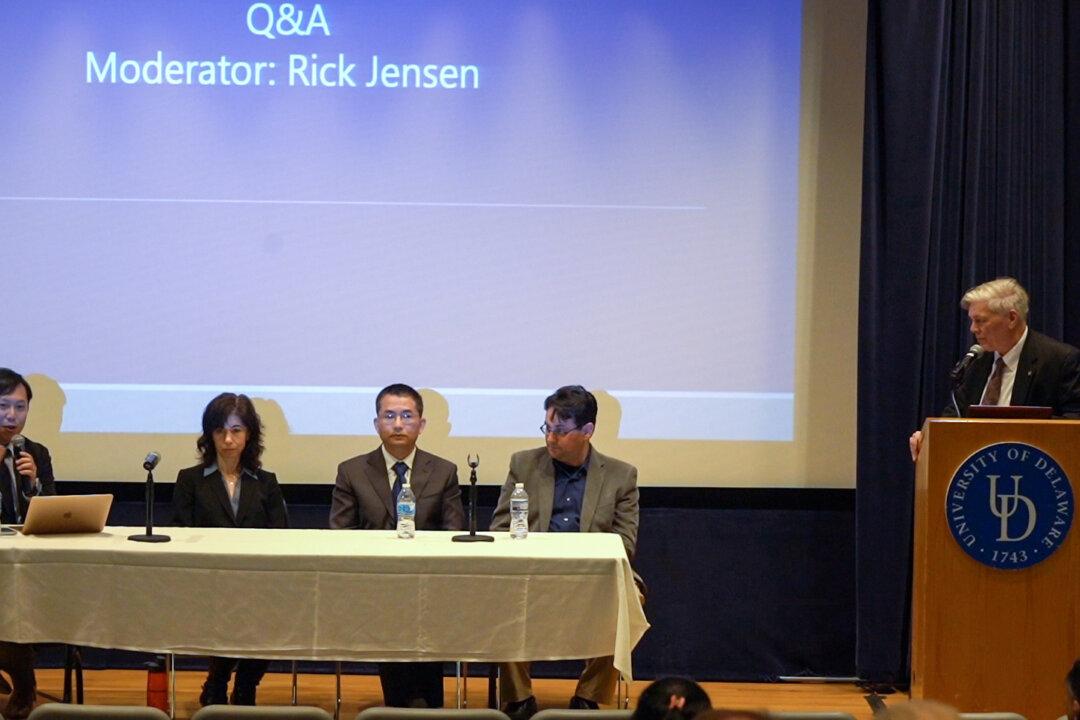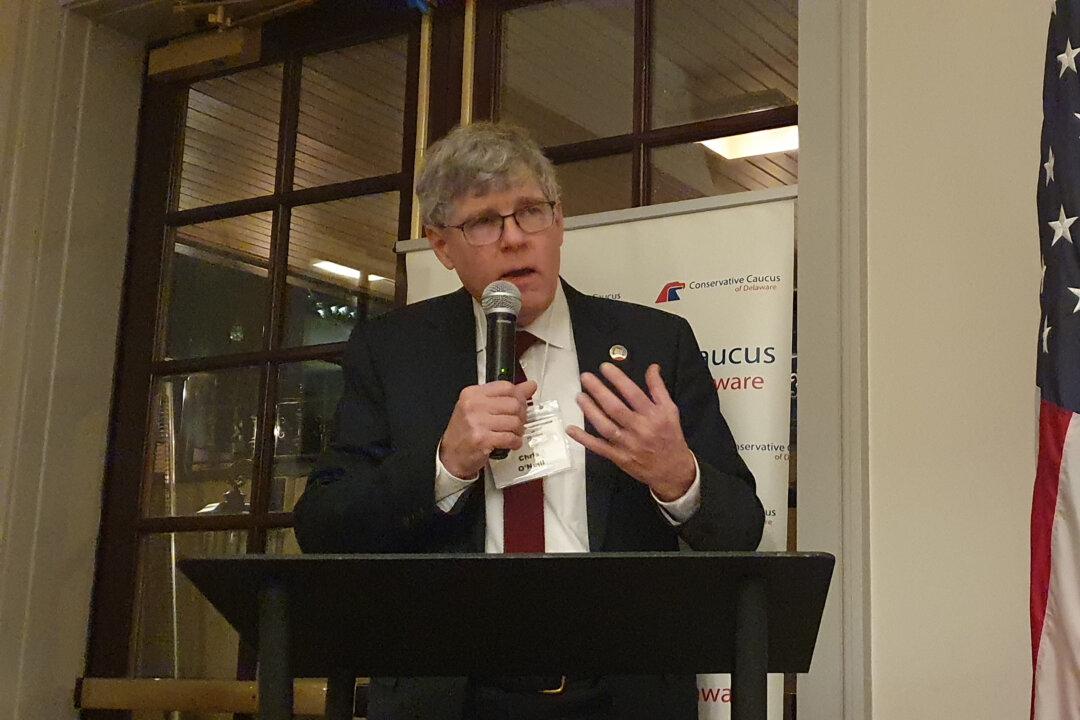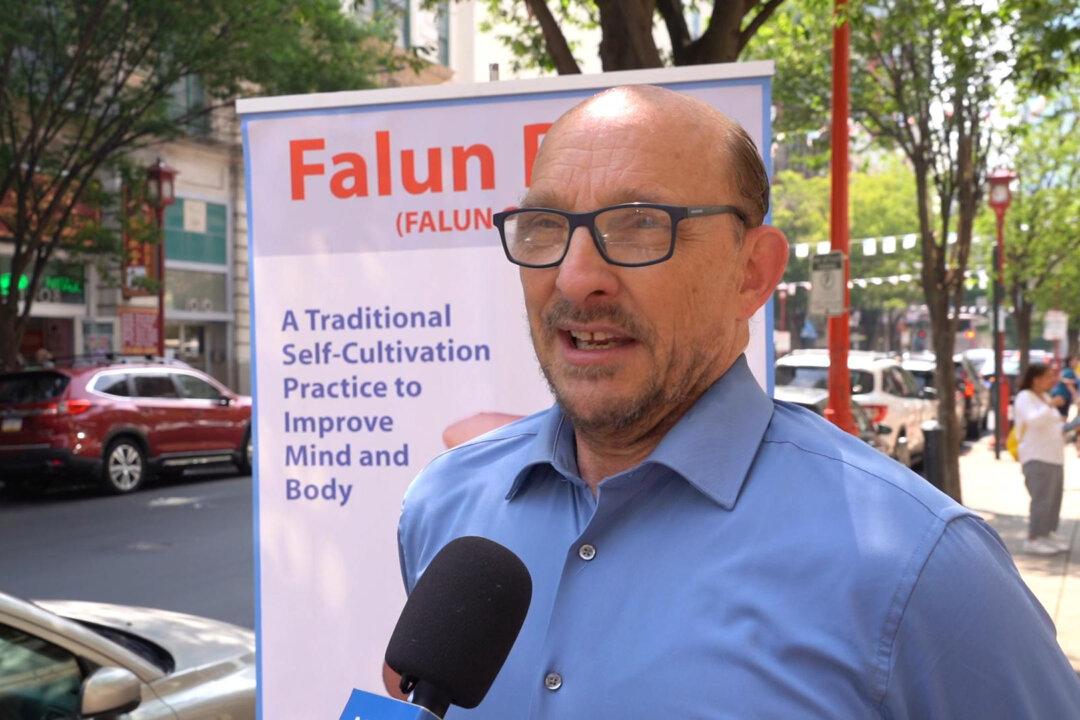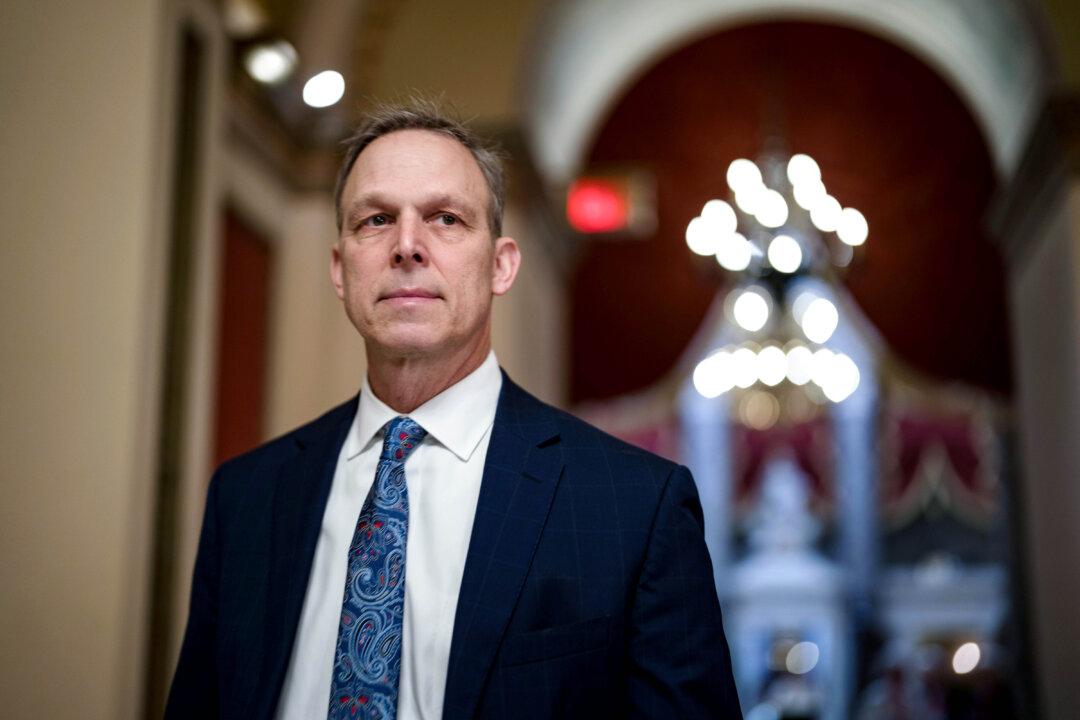NEWARK, Del.—The public film screening of a documentary in this city has raised awareness about forced organ harvesting in China, with audience members saying they were shocked to learn about such abuses.
The University of Delaware’s Rotaract Club hosted the screening of “Medical Genocide” at Trabant Theater on campus on April 26.
The documentary exposes the Chinese communist regime’s practice of forced organ harvesting from prisoners of conscience.
From around the globe, people in need of organ transplants have been flying to China for transplant operations, not realizing that prisoners of conscience are being murdered for the organs used.
Audience Response
Nearly 50 students and others saw the film and listened to the panelists. Some shared their feelings after the event, often expressing their willingness to do more to help stop this atrocity.“I thought it was important to host the event here on campus,” said Chandana Elavarthi, a senior undergrad at the University of Delaware (UD) and medical diagnostics major who is with the Rotaract Club at the University of Delaware.
“I feel one of the most appalling things is. We’re always taught about medical ethics and being very aware of how you’re treating your patients. So it was scarring to see a lot of these doctors who are knowingly doing these, like murders in China,” she said.
Monica Elavarthi, in her second year of getting her MBA, said she had been unaware of the scale of the abuse.
“I was very surprised to see just the sheer number of the forced organ transplant that’s happening,' she said.
“I’m glad that we were able to host this event. I’m hoping that we’re going to be able to host more events in the future to bring awareness to that too horrible crime.”
A senior English and linguistics major, Emily Lewie, said what has been occurring in China with forced organ harvesting is terrible.
“I had no idea that anything of that scale was going on anywhere in the world. And I was just shocked to hear that kind of thing happening. It was just awful,” she said.
Lewie added that she could help create awareness about organ harvesting in China through her writing.
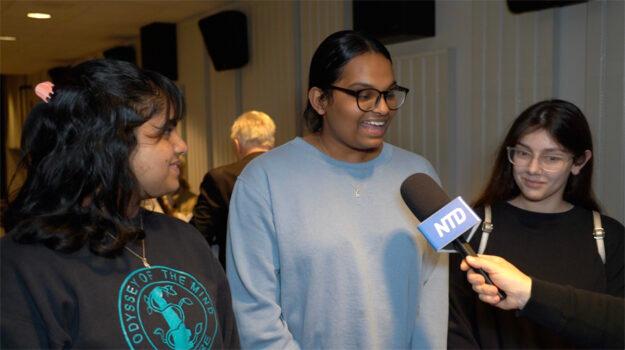
Davern Whitehurst, a sophomore landscape architecture major, signed the petition to Stop Forced Organ Harvesting after the event.
Whitehurst said the event was “very informational” while adding he wasn’t aware of the persecution of Falun Gong practitioners, who were the main victims of forced organ harvesting in China.
“I feel like it should be taught more like in classes,” Whitehurst said. “I actually want to talk about this in my next assignment.”
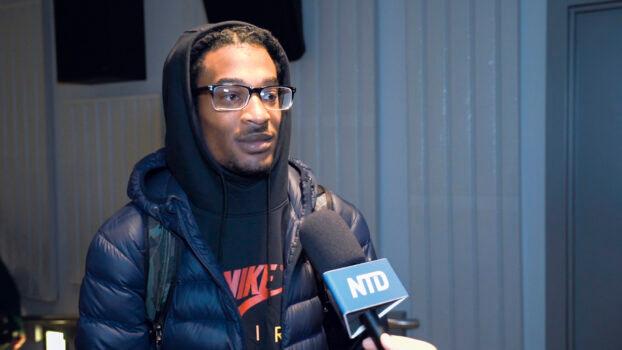
Besides students, attendees from different backgrounds were shocked as well.
An anesthesiologist from South Jersey, Dr. Lawrence Simons, told The Epoch Times more needs to be done to create awareness about the issue.
“The horrors are just unimaginable, unexplainable. As the speakers rightly said, awareness is key,” Simons said.
“We’ve got to spread the word of what’s going on. It’s been too long,” he said.
“Just terrible. Being an anesthesiologist and knowing that a lot of these organ donations are happening with little or no anesthesia, just the horrors are unimaginable,” Simons said.
“First of all, it shouldn’t be forced. And second of all, minimal or no anesthesia, it’s just torture beyond balance.”
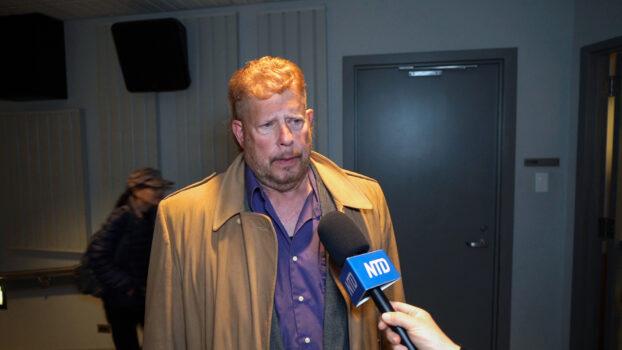
In response to the reports that many hospitals in the United States have been training Chinese surgeons in organ transplantation, Simons said: “It goes against the American ethical Hippocratic Oath.”
“These practices must be stopped,” he said.
Business owner Zachary Bagdon told The Epoch Times he was moved by what he learned.
“I didn’t realize the scale of the problem … I also didn’t realize how bad it is and how American companies and European companies are so intertwined in this trade,” he said.
“And it’s basically being sanctioned by every government in business globally. It’s very disturbing to hear how many American companies and European companies are directly involved in this.”
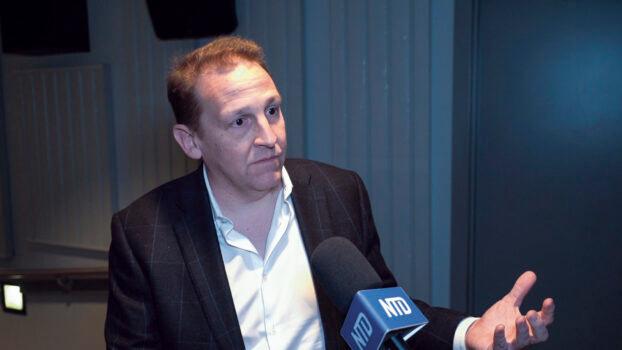
Action Needed
The documentary highlighted that China’s transplant industry profits from people around the globe who travel to China for on-demand transplants. Those who attended the event say Americans can take action to raise awareness on this issue and help stop the abuse.Award-winning talk show host Rick Jensen moderated the panel discussion after the film’s screening.
“I think what we need to do—and I’ve tried to do this on a small level as one person—we need to boycott China and stop buying from China as much as possible, but it’s very difficult to do,” Jensen told The Epoch Times after the event.
“So it is important, I believe, for the politicians to have these resolutions that make it public.”
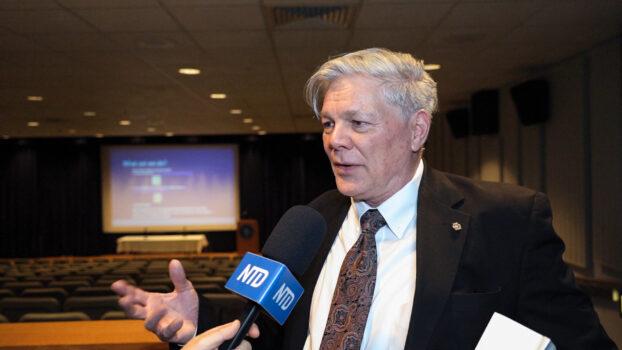
Jensen feels the urgency to stop the horrific human rights abuse in communist China.
“How much longer is it going to take for the rest of our country to realize this is what’s happening?” he asked.
“Imagine your mom, your dad, your sister, your brother, being grabbed by the police, put into a slave labor camp, and given health checks until they decide—‘Okay, now we’re going to kill that person because we have somebody who’s willing to pay for that liver.’”
Lynn Mey, a retired global operation manager, said the United States can take action to address the issue.
“I really believe that there are actions that the U.S. can take, that then can make a difference,” Mey said.
“And it’s going to be multifaceted. I think there should be no reason why we can’t pursue angles, such as with legislation that was discussed, but also through insurance companies and through awareness of different companies that are benefiting and supporting this atrocity against humanity.”
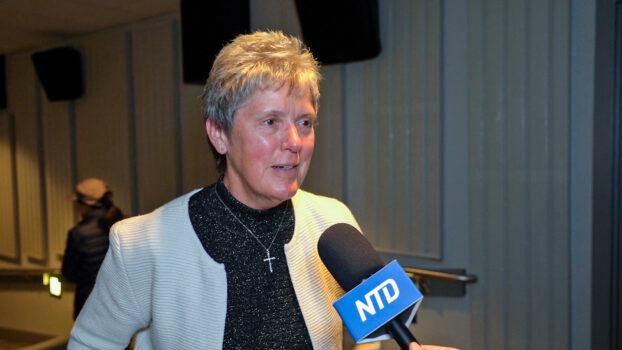
Shirley Hu, main event coordinator and an honorary member of the Rotary Satellite Club of Ending Forced Organ Harvesting, responded to a question during the panel, where she shared about legislative action being taken in Texas.
“In 2019, I was honored to present the ‘Medical Genocide’ film at my Rotary club in Texas, and both my district Senator and Rep. came to attend. Both of them decided to issue a resolution to condemn the CCP’s horrific crime of forced organ harvesting,” she said.
“In 2021, the resolution SCR3 was passed unanimously from both Senate and House. In April this year, a bill (SB1040) was introduced and passed in the Senate to stop the reimbursement of the medical insurance that’s associated with forced organ harvesting.
“The companion House bill (HB2045) just had the hearing Monday and will be voted next week. This is a bill; it is binding. They set a good example for us.”
The audience gave her a big applause.
Mey said she was excited to hear what Texas was able to do.
Global Response
One of the four panelists, Dr. Jessica Russo, a member of Doctors Against Forced Organ Harvesting (DAFOH.org), explained to the audience the history and current status of forced organ harvesting of Falun Gong practitioners by the Chinese Communist Party (CCP).For roughly two decades, the Chinese regime has been forcibly extracting organs from living prisoners of conscience, mainly Falun Gong practitioners, to sell for profit. This has been corroborated by expert witness testimony and independent panels.
At least seven governments worldwide have responded to organ harvesting in China by passing legislation to restrict illicit organ tourism, as well as resolutions condemning the atrocities, including Israel, Spain, Italy, Taiwan, Norway, Belgium, and Canada.
Last month, the U.S. House overwhelmingly passed a bill (H.R. 1154) to punish communist China for forced organ harvesting. It would sanction anyone involved in the act and requires annual government reporting on such activities taking place in foreign countries. It’s the first non-symbolic bill passed in the United States that counters the atrocity.
